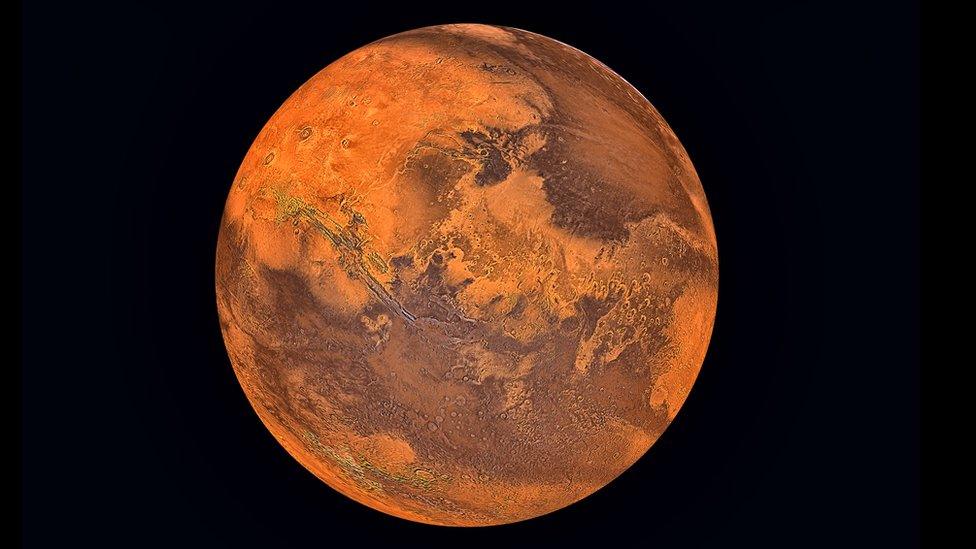Nasa twin study: What happens to the body in space?
- Published
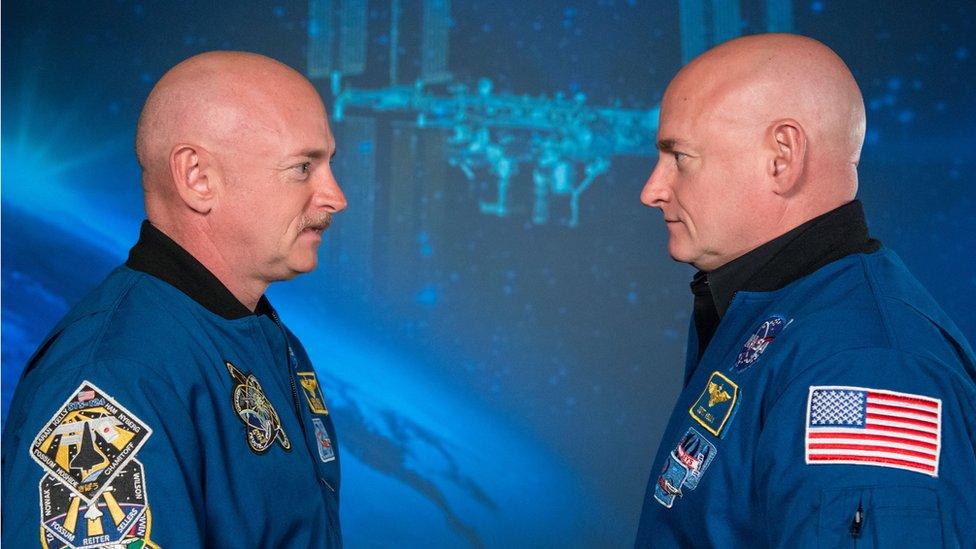
Sometimes we all need some time apart from our siblings. But imagine if your brother popped off to space for a year!
Well, that's what happened to identical twin astronauts Scott and Mark Kelly.
It wasn't because they wanted to get away from each other - no, scientists were finding out how space travel affects the human body.
They want to know more because more long-term space missions are being planned.
Studying the brothers is really useful to scientists, because they are identical twins their genes are almost exactly the same.
That means that the results from the tests are more reliable than if the tests were done on non twins.
How did this work?
Scott spent 340 days in space aboard the International Space Station (ISS) - while Mark stayed back on Earth. During this time both men were monitored closely.
Scientists looked at the twins' genes. Genes are the body's code which build the characteristics we inherit from our parents - like brown eyes or big feet.
They collected and analysed samples of blood, wee, poo and saliva. Then they compared the results to see if anything was different between the brothers.
What did they find?
There were thousands of changes when Scott went into space but here are a few.
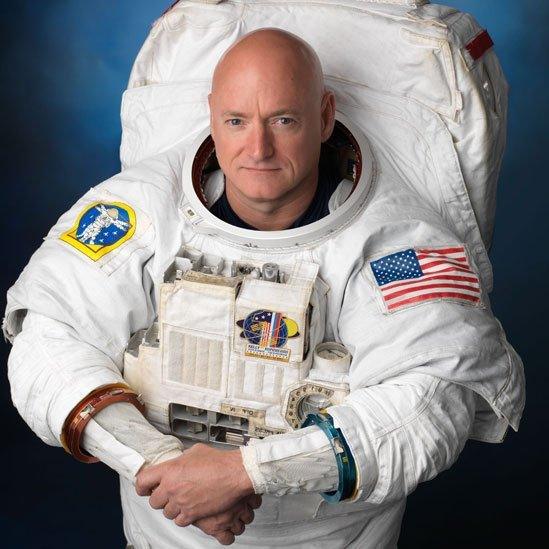
Height: Scott came back 5cm taller than his twin! This was because the ISS's microgravity makes the spine longer.
Weight: Scott lost 7% of his body mass whilst on board the ISS - while Mark gained 4%. Researchers think this is because of a worse diet and getting less exercise in space.
Alertness: Scientists found Scott was slower and less accurate in brain tests after the flight. Sounds like he was a bit spaced out…
Eyeballs: The shape of Scott's eyeballs changed - and so did his vision! Scientists put this down to the zero-gravity, which made fluid shift to his head.
Were the changes permanent?
Well 93% of Scott's genes went back to normal within six months of coming home - but 7% were permanently changed.
Scientists say this shows how the human body can adapt to space travel.
- Published4 March 2017
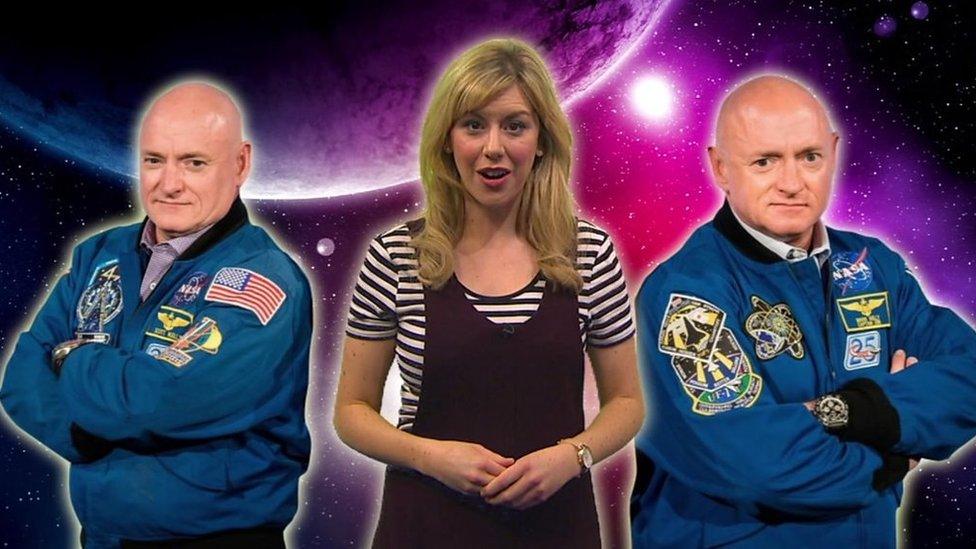
- Published27 November 2018
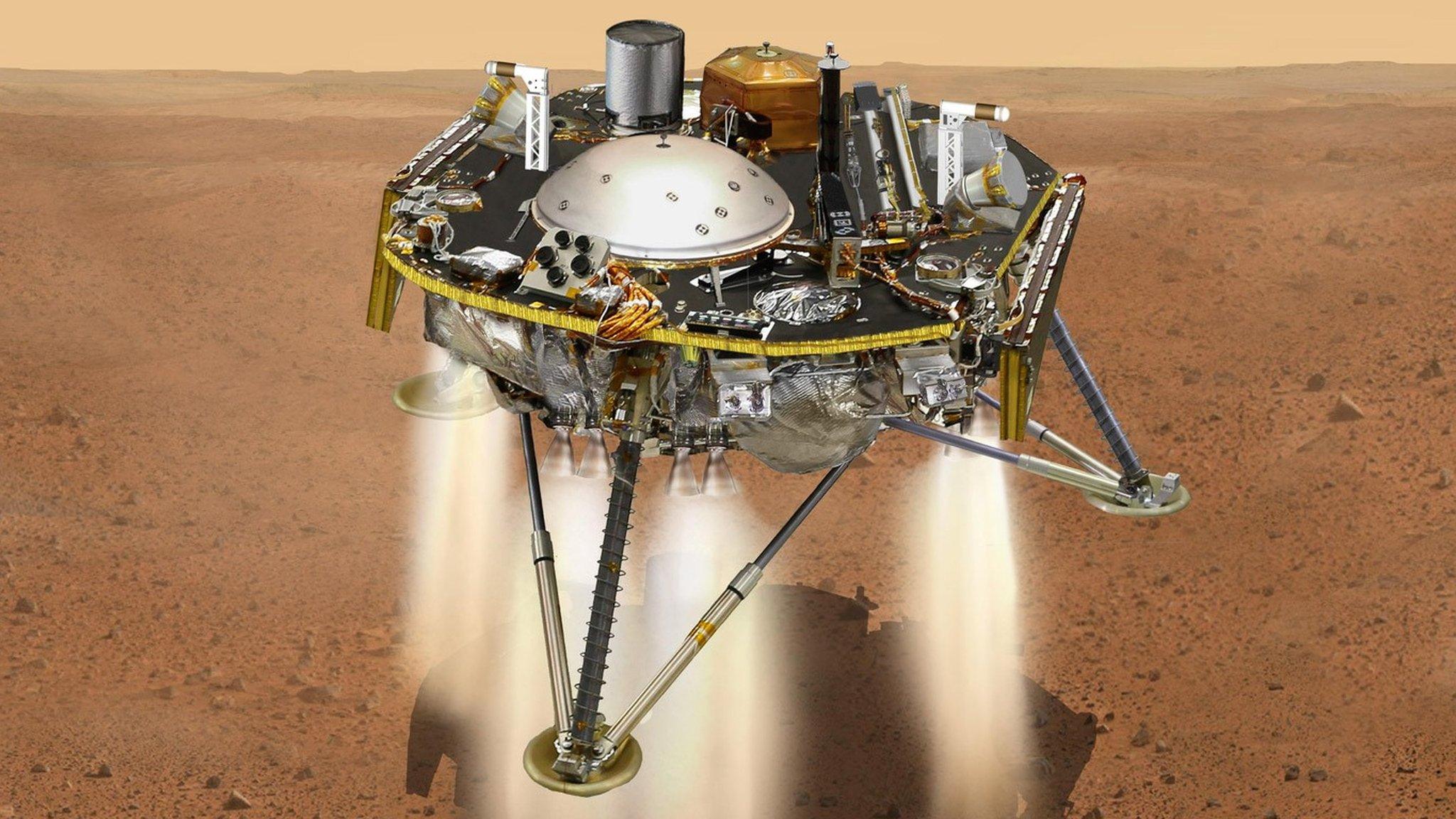
- Published12 August 2018
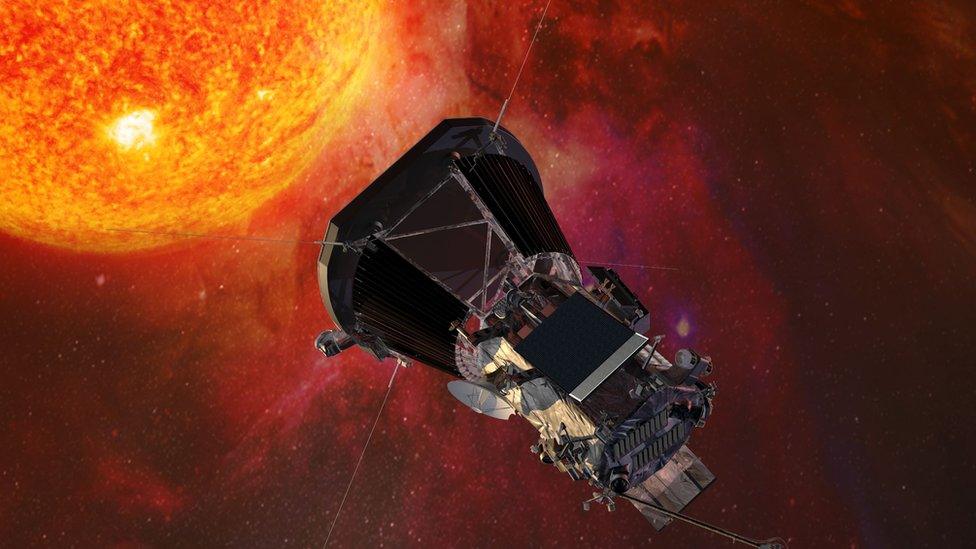
- Published26 July 2018
